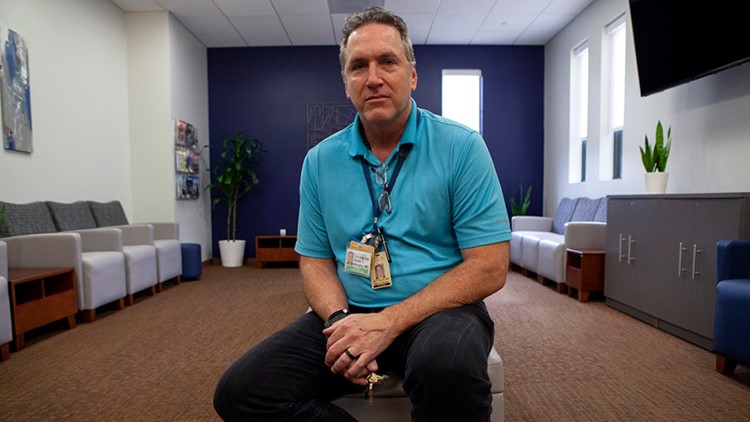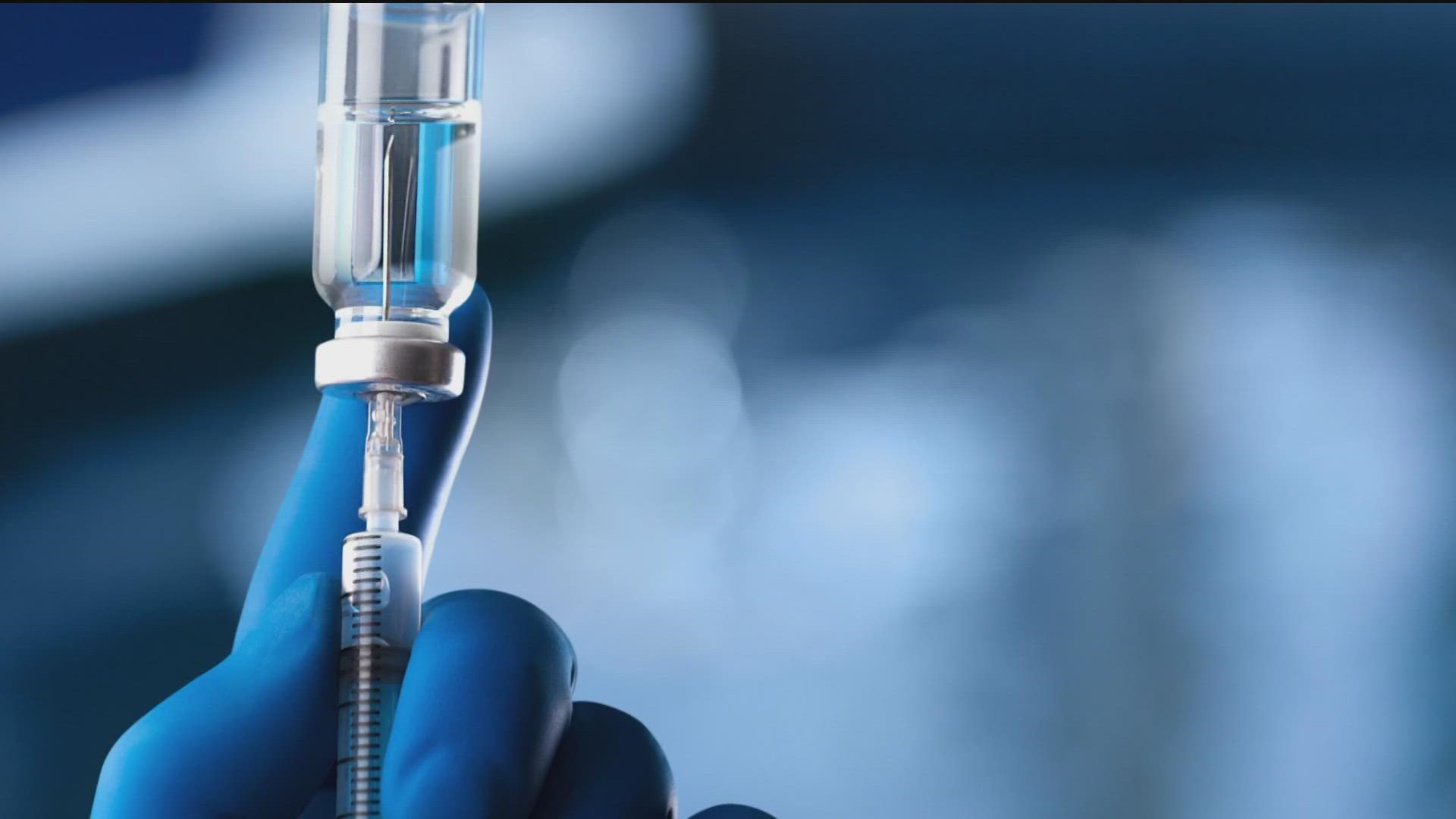A UC San Diego doctor — who was the centerpiece of an inewsource investigation this year — violated a litany of university policies while developing and researching his experimental brain treatment, according to a recently concluded UCSD and UC Office of the President inquiry.
That two-year investigation into Dr. Kevin Murphy found he misused university resources to promote and benefit his private companies, falsely claimed ownership over an invention, provided patient care without authorization and repeatedly violated university policies about disclosing his business interests.
Murphy’s attorney said he and the doctor dispute the findings and plan to sue the University of California.
An independent law firm conducted the inquiry after a UCSD whistleblower in 2018 alleged Murphy misused a $10 million donation meant for research to benefit his private businesses.
Investigators interviewed 30 witnesses and reviewed “significant electronic documentation,” a university spokesperson told inewsource.
“UC San Diego reserves all rights and remedies with respect to the investigative findings, including recovery of misspent funds, discussions with donors, referrals to other entities, and assertion of ownership rights” for technology Murphy developed during his time at the university, the spokesperson said.
Murphy is no longer with UCSD and is continuing to grow his private businesses throughout the country. He has not offered to refund any of the donor’s money he already spent.
UCSD called its investigation “complex and far-ranging” but would not give inewsource the full report. Instead, the university provided a summary of the report which did not address several key findings uncovered in inewsource’s reporting.
Those include Murphy’s role in potentially prompting a former Navy SEAL’s psychotic break, committing apparent academic plagiarism and repeatedly making unsupported claims about the effectiveness of his treatment. The findings also didn’t elaborate on how a top UCSD attorney was able to help Murphy set up private companies without disclosing his involvement to the university.
Murphy’s employment at UCSD ended June 30 when his contract with the school expired. He would not comment for this story on the advice of his attorney, Mark Quigley of Greene Broillet & Wheeler.
Quigley told inewsource that the University of California will not provide him with supporting evidence for its “very serious allegations.”
“I think it's incredibly unfair to Dr. Murphy to publish this stuff without giving us the backup,” he said, adding that Murphy plans to sue his former employer for wrongful termination, whistleblower retaliation and intellectual property rights.
“So, we're off to the races I suppose,” the attorney said.
In December, UCSD spokesperson Kim Kennedy promised inewsource a sit-down interview to discuss the investigation once it was completed. In July, just weeks after Murphy’s contract expired, school officials refused to honor their agreement.
Nor will the university address evidence Murphy provided to inewsource that appears to disprove at least one of its conclusions.
A recap of REWIRED
Murphy specializes in pediatric cancer care, and until last year he was a vice chairman at UCSD’s Department of Radiation Medicine and Applied Sciences.
He was also a father desperate to alleviate his son’s violent autism when he first heard about an electromagnetic treatment for altering brainwaves called transcranial magnetic stimulation, or TMS. Murphy explained this over the course of three interviews lasting more than 13 hours last fall, as part of inewsource’s REWIRED investigation.
Murphy became a convert after noticing his son’s improvement following TMS sessions at a private clinic. He purchased a TMS machine and used it at a San Diego clinic to treat “just about everything,” from PTSD, autism and Alzheimer’s disease to traumatic brain injuries, eating disorders and a bad golf swing.

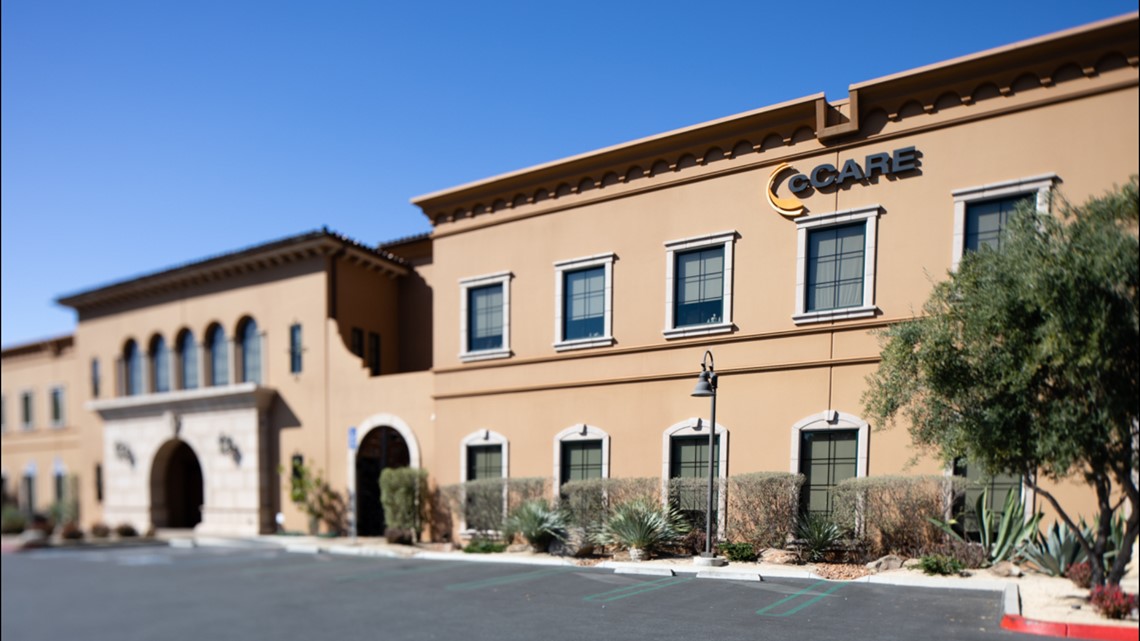
That’s how he met Charles Kreutzkamp, a San Diego philanthropist whose cancer treatments led to thinking and memory problems known as “chemobrain.”
Murphy treated those symptoms with TMS and was so successful, he said, that the Kreutzkamp family left him one of the largest-ever research donations for a UCSD employee upon his death in 2015.
That’s where the trouble began.
At first, Murphy and UCSD leadership disagreed over where the donation should go. As written, Kreutzkamp’s endowment didn’t mention TMS or Murphy. It said the $10 million would fund cancer research.
Kreutzkamp’s widow, Ernestina, clarified in writing the following year that the money was meant for Murphy “to be used by him, and under his direction, in order to support his time for TMS research.”
The letter was written in flawless English, though Ernestina speaks very little of the language. Her lawyer later told inewsource he wasn’t sure who wrote it.
The dispute led to grudges, Murphy said, because he “had to extract a $10 million lollipop out of the cancer director’s mouth.”

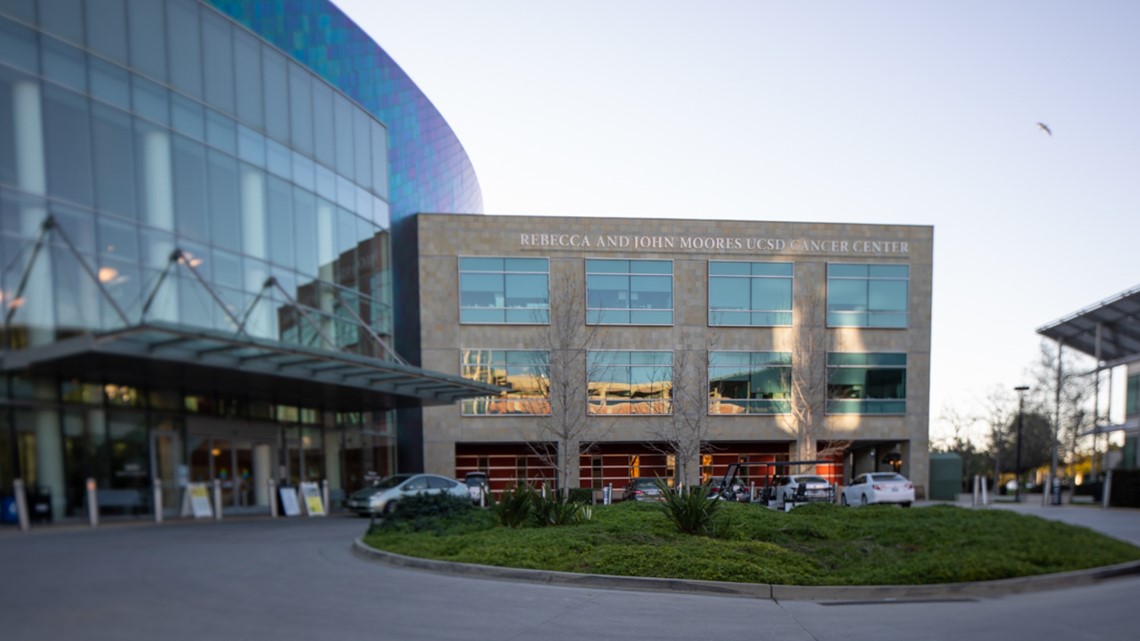
The donation eventually ended up in a gift fund that Murphy could use to study his method of “personalizing” TMS treatment, which involves monitoring a patient’s brainwaves while adjusting the strength, location and frequency of the electromagnetic burst.
Standard TMS has been around for decades and is a proven treatment for alleviating symptoms of depression, obsessive-compulsive disorder and migraines. However, there is no scientific research to back up the claims Murphy has repeatedly made to veterans, nonprofit groups and the public about how effective his personalized treatment is. Murphy admits this but has said he’d still declare to the “entire academic community” that his version of TMS is superior to any other.
Murphy was hoping to prove the efficacy of his treatment on patients with a wide range of mental disorders by putting them through clinical trials, which is what he said the $10 million was for.
While getting those started, Murphy was also founding and playing executive roles in personalized TMS-related companies: The Medical Synchrony Center, The Medical Synchrony Research Institute, Mindset, PeakLogic, FreqLogic and Peak M.D. Institute.
Some of these businesses operated out of the same building that Murphy was using for his clinical trials.
In June 2018, a member of Murphy’s UCSD department alleged the doctor was using the $10 million Kreutzkamp donation to directly benefit his private businesses.
To resolve concerns about business conflicts, Murphy stepped down from his full-time role to become a part-time contractor at UCSD and wrote in a declaration under penalty of perjury that he did not use the gift fund to create his personalized TMS software.
Some equipment mixups occurred, he explained to inewsource in interviews, but everything had been resolved and nothing was missing.
Investigation and findings
Boies Schiller Flexner, the law firm UCSD brought on to investigate Murphy, however, did find numerous problems with the doctor’s activities, including that he used university equipment, property, facilities, staff and consultants to promote and benefit his private businesses.
It also found that “since at least 2015, Dr. Murphy has repeatedly violated” university policy by “founding businesses and/or engaging in those businesses in an executive capacity without prior approval.”
In November, a physical inventory was taken of equipment Murphy purchased with Kreutzkamp gift funds. It found 28 items were missing for a total of $158,005.
The UCSD investigation also found that Murphy:
- Cared for patients outside the university without approval and retained income from those activities.
- Violated university policy regarding the disclosure of inventions and falsely claimed ownership over an invention.
- Didn’t abstain from financial conflicts of interest, in further violation of university policies.
“UC San Diego takes these investigative findings seriously and, as a result, will establish more sharply defined guard rails to help prevent future inappropriate activities,” a UCSD spokesperson emailed inewsource.
“For example, internal controls will be bolstered to improve regulation and oversight of gift expenditures. Conflict of commitment reviews will be more strictly enforced. And relevant policies and protocols revised with expanded education and training.”
The university didn’t say Murphy was fired but that his contract had expired during the investigation and was not renewed. Murphy’s attorney called it being fired and said that will be “one of the issues in the coming lawsuit.”
UCSD has not said what it plans to do with the remainder of the $10 million donation, since more than half of it has been spent and the university has nothing to show for it. No one has gone through any of Murphy’s personalized TMS research trials.
An attorney for Ernestina Kreutzkamp, Charles’ widow, told inewsource last week that UCSD reached out to him about the conclusion of its investigation and said the remaining funds would be overseen by Dr. Zafiris Daskalakis, the new chair of the university’s Psychiatry Department.
Daskalakis has performed dozens of studies on TMS and its effectiveness in treating depression, schizophrenia and other severe psychiatric disorders.
What the investigation didn’t cover
The investigation’s findings as provided did not touch on a range of accusations against Murphy that were uncovered during inewsource’s investigation into the doctor.
Take San Diego veteran John Surmont.
The former Navy SEAL considered himself Murphy’s “patient zero” after having undergone at least 234 rounds of personalized TMS under the doctor’s care.

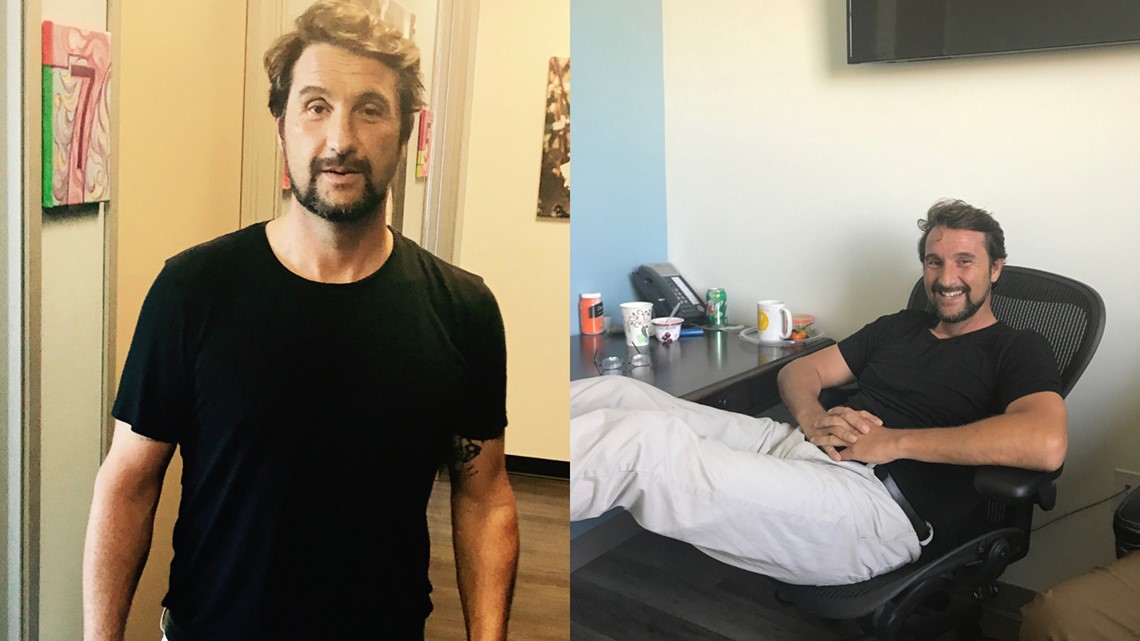
The veteran, who had no history of psychosis, mania, bipolar disorder, schizophrenia or hallucinations, eventually had a psychotic break. He spent weeks running scared around L.A., thinking he was on a military mission with a nuclear weapon inside him, until being arrested at gunpoint.
Murphy told inewsource it was highly unlikely his treatment caused Surmont’s break, claiming there was a greater chance of being struck by lightning. He also made a number of false allegations against his patient during his interviews.

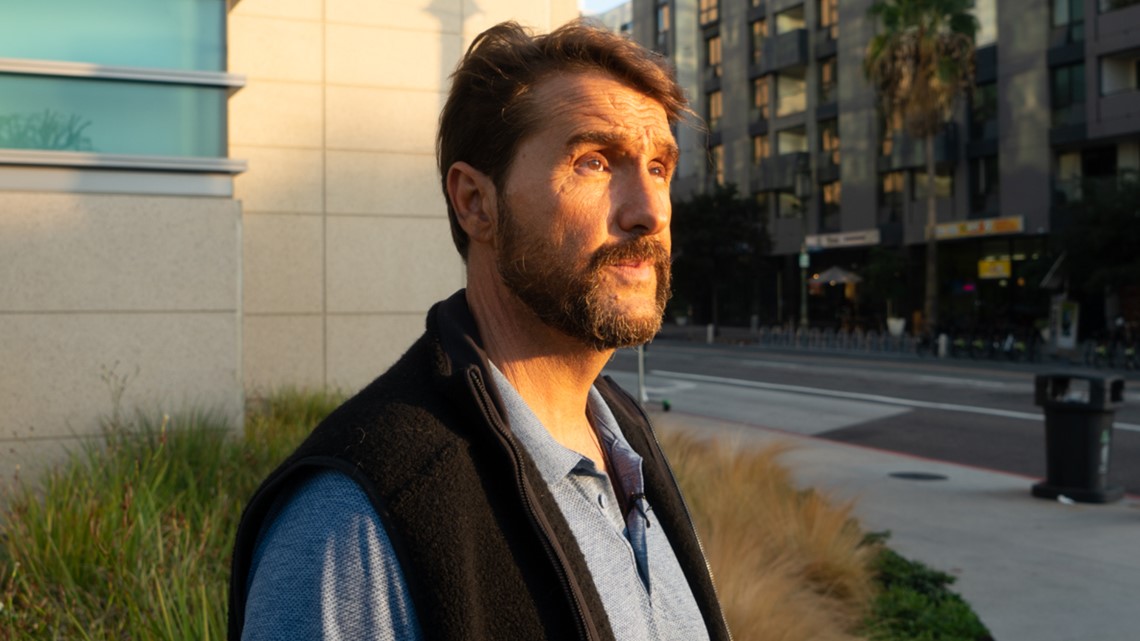
Surmont filed a complaint with the California Medical Board in early 2019.
In ruling against him in April, the board described to Surmont the state-required burden of proof to pursue administrative action against Murphy:
“This is a higher standard of proof than that of most civil proceedings, including malpractice lawsuits, which only require a ‘preponderance of the evidence,’” the board wrote.
Surmont said he plans to appeal the ruling.
The UCSD investigation summary also didn’t touch on evidence showing that Murphy claimed a competitor’s work as his own to justify beginning human research trials at the San Diego VA.
After reviewing Murphy’s 2016 research proposal for a personalized TMS trial, ethics expert Dr. Harold Garner told inewsource, “This is what would be considered by scientific professionals to be plagiarized material.”
He added, “If Murphy cannot produce laboratory notebooks from whence the data came, it would be considered fabricated or falsified data,” and that it’s “up to UCSD if they desire to do something.”

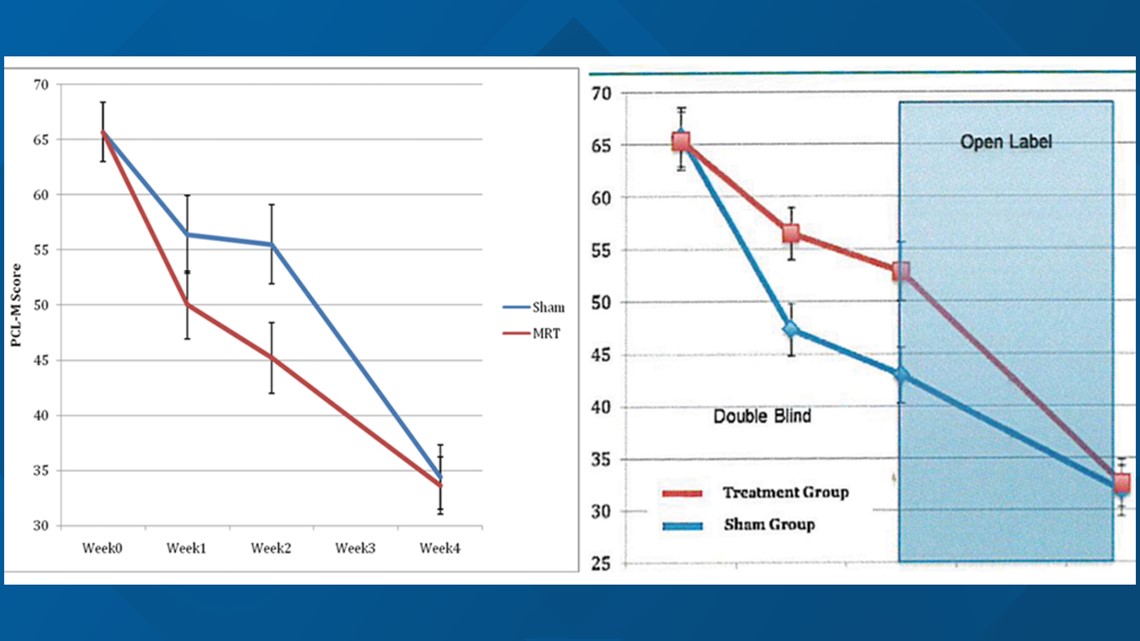
Six months ago, inewsource emailed UCSD’s vice chancellor for research, Sandra Brown, about the plagiarism. Reporters also asked whether it was a problem that Murphy went outside the university’s institutional review board to get two other human research trials approved without notifying the school.
A spokesperson replied: “Research misconduct investigations are confidential and the university will not confirm or deny whether there is an ongoing investigation.”
A third inewsource finding concerned Murphy’s wife, Lisa, a chief administrator at UCSD Health who helped with her husband’s businesses.
She was listed as CEO of one of Murphy’s personalized TMS companies, though she told inewsource that was a filing error. She also sent estimated revenues and expenses to investors interested in taking over two of Murphy’s personalized TMS clinics in Indiana in 2018.
The university investigation summary did not mention her involvement.
Another inewsource finding that went unaddressed by the university concerns medical claims Murphy has made — and continues to make — about his treatment.
In a blog post about the COVID-19 pandemic, Murphy’s private company refers to personalized TMS as “a proven treatment that quickly relieves anxiety, depression, and stress.”
Personalized TMS is a “solution” for ADHD, according to the website, and is “proven to be safe.” It’s also “better” than or “improves” upon standard TMS for alleviating depression, PTSD, concussions and anxiety.
But Murphy’s personalized version of TMS has never undergone a clinical trial and no peer-reviewed data exists to back up the statements.
It is Murphy’s opinion, though patients wouldn’t know that unless they dug into the site’s FAQ page, which explains the company relies on its “own understanding” of patient experiences.
The fault of others
Murphy has blamed nearly every mistake made related to the Kreutzkamp gift fund on others — more than a dozen secretaries, managers, bosses and administrators who were involved in the donation and research.
“The real story here is a big, incompetent, jealous, bureaucratic organization that doesn't talk to each other,” Murphy told inewsource for its earlier investigation.

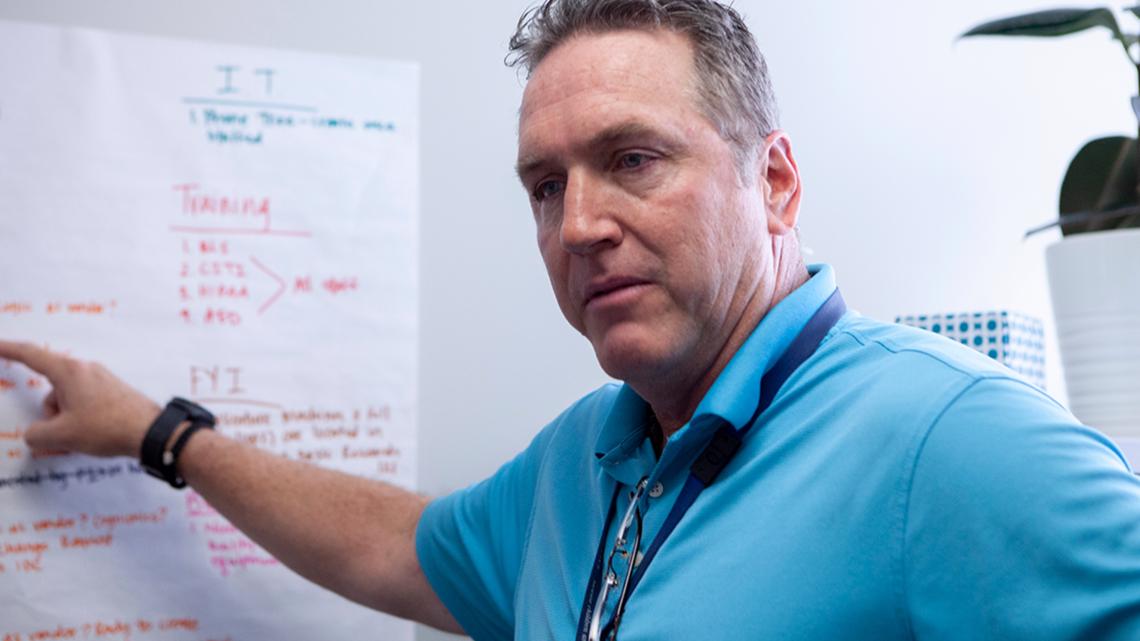
He filed a whistleblower complaint last year against former campus compliance officer, Dan Weissburg, for trying to impede his success.
Murphy’s attorney, Quigley, specializes in representing whistleblowers and received a “Giant Slayer” award in 2015 for exposing “evidence of corruption and cover-up at the highest levels” of UCLA’s Geffen School of Medicine.
“And I have a number of cases against the University of California for retaliating against people who are mandated to report illegal conduct and fraud and waste, which is exactly what Dr. Murphy did, and then he ended up getting fired for it,” Quigley said. “I see it over and over again.”
Earlier this year, Murphy provided inewsource with emails and contracts showing he received assistance from Michael McDermott, a former top UCSD lawyer, while establishing his private TMS companies and starting up his clinical trials at the university. McDermott was listed as an officer of several of Murphy’s businesses while also serving as the UCSD health system’s chief counsel. He ran a company that contracted to earn money from at least one of the doctor’s ventures.
McDermott never listed these connections on his annual UCSD disclosure forms.
Murphy has said he made clear to investigators that he had approval from McDermott, a university higher-up, for his research and business activities that later came under scrutiny.
But the UCSD investigation concluded otherwise.
“With respect to Dr. Murphy’s position that he relied on the advice of or sought approval from specific members of UC San Diego leadership, this position was not supported by the evidence,” the findings state.
Quigley said that doesn’t make sense.
“I guess we'll have to talk to McDermott and find out what his involvement was, but I've seen a million documents with his name on them,” he said.
What happens next
Though Murphy is no longer at UCSD, medical practices that offer his brand of personalized TMS continue to expand throughout the U.S., while some appear to have shut down since inewsource’s February investigation.
There are currently providers in California, Florida, Hawaii, Indiana, Michigan, New York, Ohio, Oregon, Texas and Utah, according to Murphy’s website.
Two human research studies on personalized TMS, funded by the U.S. Special Operations Command, are still scheduled to be conducted by the Air Force Research Laboratory and Walter Reed National Military Medical Center later this year, according to a spokesperson for the command.
“U.S. Special Operations Command is aware of the investigation and will take into account any facts that come to light to determine their impact on future studies,” the spokesperson said.
Quigley said he expects Murphy will file a lawsuit against the University of California in September.


